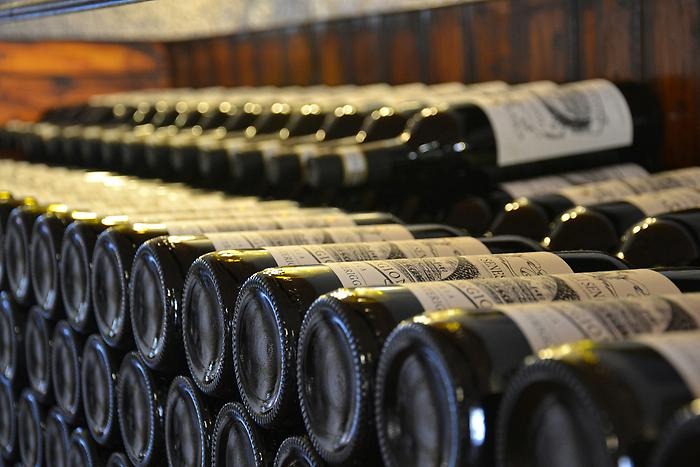Alcohol regulations reduced sales - historical retrospective
%20vinflaskor.jpg)
Photo: Danielle Suijerbuijk at Unsplash.
Farmgate sales of beer, wine and spirits could become a reality in Sweden by 2025, sparking debate on Swedish alcohol policy. Meanwhile, a study led by researchers at Jönköping International Business School (JIBS), Jönköping University and Umeå University, is investigating the effects of alcohol regulations introduced over a century ago, and how they can still influence policy decisions today. The research shows that alcohol regulations have historically helped to reduce alcohol sales.
The Swedish government is currently working on a bill that would allow small-scale and artisanal sales of alcohol directly from producers on farms. If passed, farm sales of wine and other alcoholic beverages could become a reality as early as the first half of 2025.
Through a Forte-funded research project underway at JIBS, the research will help to understand the socio-political and economic effects that alcohol regulations have historically had.
The research project, entitled ‘How well do alcohol policy regulations work? - A study of the first decades of the 20th century’ is led by Paul Nystedt, Professor of Economics at JIBS, together with Lars-Fredrik Andersson and Liselott Eriksson at Umeå University, and studies the effect of alcohol regulations on alcohol sales in the early 20th century.
“In addition to the historical perspective, the research also contributes to a better understanding of Swedish alcohol legislation,” says Paul Nystedt.
The study is based on a comparison of cities that introduced so called Bratt System (Swedish: motbok) like restrictions with those that did not. Sales restrictions were introduced in 1919 with the main aim of reducing alcohol consumption, poverty and deprivation.
The results contradict the main argument
"The research project found that sales fell quite dramatically in cities that had introduced alcohol regulations. On average, sales in cities that had introduced regulations fell by around 20 per cent, says Paul Nystedt".
The results contradict one of the main arguments often levelled against regulation - that it wouldn't make a difference, that people would find ways to get alcohol anyway. According to the study, there is no evidence that consumption was sustained by illegal sales, home distilling, people shopping elsewhere, or similar.
The study also found that in cities close to those that had introduced alcohol regulations, sales had not increased. Restaurant sales had also not increased and there was no increase in the number of people convicted of various sales offences (moonshining and the like).
Motboken would reduce poverty
In the decades following the introduction of the Bratt System (motboken), poverty was reduced, but no one knows how much of an impact this actually had on development, as many other changes took place at the same time.
Contrary to the hopes of the time, there is nothing in the material studied to suggest that poverty was reduced when motboken was introduced. The results surprises Paul Nystedt because the regulations were designed to make it more difficult to buy spirits for people who were, or were at risk of becoming, poor. However, he emphasizes that the study only looks at relatively short-term effects, and that a longer time span needs to be studied to see what happens to poverty in the long term.
The research project helps in the discussion
The study shows that historically, alcohol regulations have been able to influence alcohol consumption quite dramatically, at least in the short term, and knowledge about the effect of regulations on drinking can help inform alcohol policy decisions.
According to Paul, the arguments of the past about the pros and cons of freedom versus regulation do not differ significantly from those of today.
Although there are differences, there are also many basic arguments that recur.
“Overall, I believe that historical experience could be used as a knowledge base for policy decisions more often than is the case today,” says Paul Nystedt.
The next step in the project will be to investigate whether alcohol regulations have had any effect on different types of crime.
- Professor Economics
- Jönköping International Business School
- paul.nystedt@ju.se
- +46 36-10 1874
